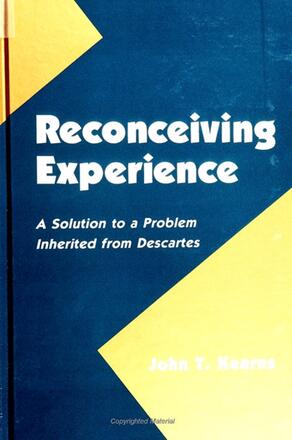
Reconceiving Experience
A Solution to a Problem Inherited from Descartes
Alternative formats available from:
Presents a new framework for understanding language, thought, and experience, and for carrying out research.
Description
Kearns investigates representation and intentional activity to determine how experience contributes to propositional thought and belief, and how experience is based on neural states and events. This speech-act theory shows using language to be intentional (purposive) activity which cannot be explained computationally or causally. Learning language makes propositional thinking possible and provides conceptual structure to experience.
The account of language and its acquisition sheds light on further issues such as reference and proper names, the difference between syllogistic and modern logic, and the paradoxes of self-reference. As for experience, the nonrelational analysis of representing explains our awareness of the world, which doesn't give us access to the world, and our access, which isn't provided by awareness. Reconceiving Experience presents a new framework for understanding language, thought, and experience, and for carrying out research.
John T. Kearns is Professor of Philosophy at State University of New York at Buffalo. He has also written The Principles of Deductive Logic and Using Language: The Structures of Speech Acts, both published by SUNY Press; and Deductive Logic, A Programed Introduction. He is also editor of the SUNY Press publication series in Logic and Language.
Reviews
"Most impressive is the author's skill in creating an original theory of experience, language, thought, and action. The theory is comprehensive, detailed, well-articulated, and well-motivated; its relevance to both traditional and recently-discovered philosophical problems is evident; and the author makes illuminating use of it to address (if not fully solve) these problems. The author's presentation is clear, well-organized, and philosophically and logically sophisticated. I found it, indeed, fascinating, stimulating, provocative. " — Vere Chappell, University of Massachusetts
"As a logician, I was fascinated by this book. Many of the problems the author addresses, especially those related to modalities are ones I have been thinking about myself. I like the author's approach and find myself agreeing with many of his solutions. This book makes an important contribution to the theory of experience, thought, and language. " — Kathleen Johnson Wu, The University of Alabama